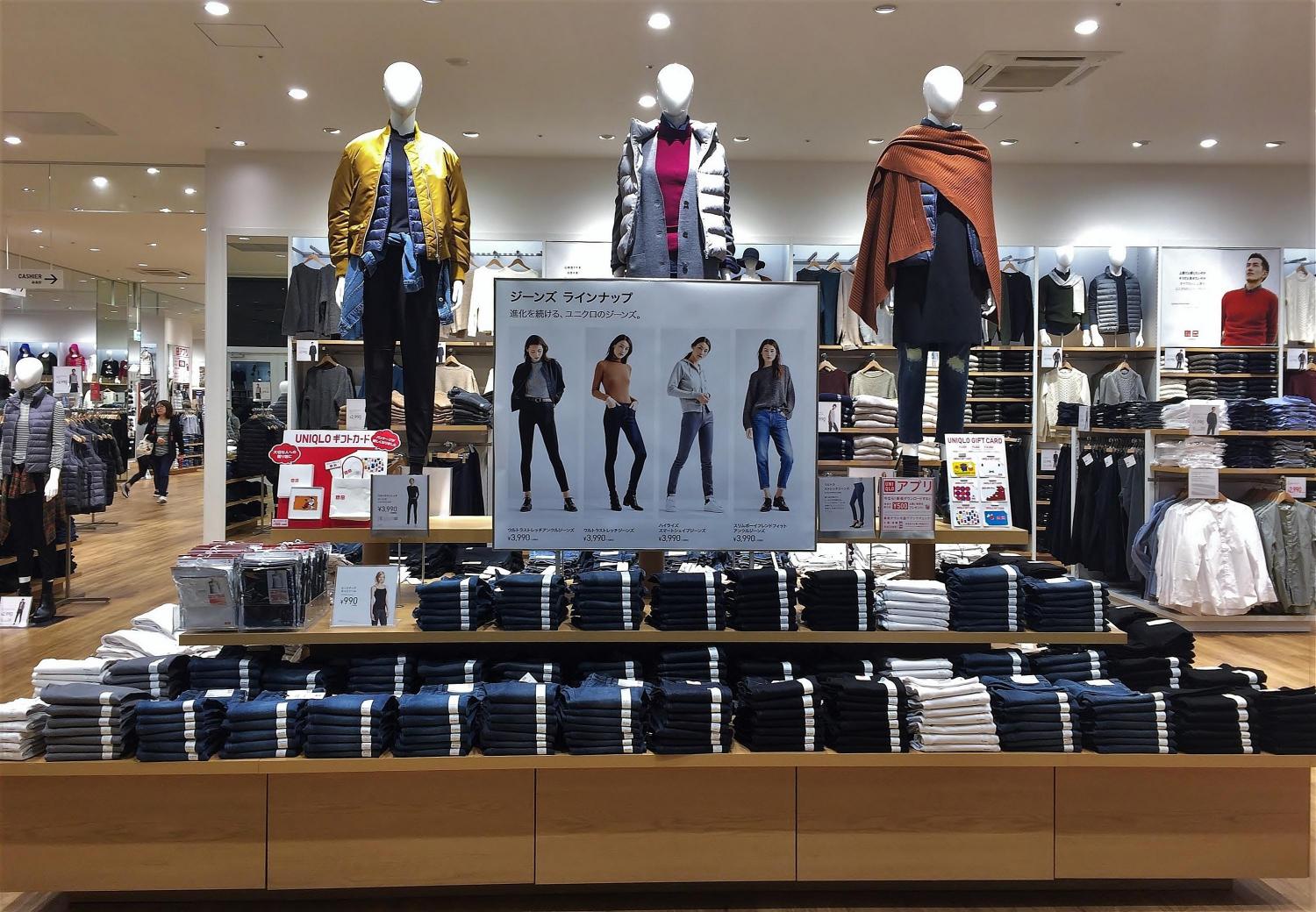
It may not be as well-known as H&M or Zara, but fast fashion retailer Uniqlo has its share of fans within the 12 U.S. states where it has locations. And as is the case with other apparel companies, the pressure is on at Fast Retailing, Uniqlo’s parent company, to ensure its clothes are manufactured with less impact on people and the planet.
To that end, Uniqlo is deploying several tactics to drastically reduce the amount of water required to make its denim jeans. Uniqlo and its competitors over the years (or, should we say, thanks to labor and environmental groups) have found that creating those “vintage” denim looks rather quickly consumes vast amount of water, chemicals and labor.
According to a profile on Nikkei Asian Review, one process Uniqlo is taking on is replacing the traditional method of stonewashing, which usually involves washing the jeans with pumice in a massive drum. Instead, engineers have devised a “nano-bubble” technology, paired with fabricated “eco-stones” that factory employees can use repeatedly. As anyone who has pumice stones in their housecleaning kit knows, those stones disintegrate fairly quickly. Uniqlo’s process slashes the amount of water and materials waste needed to gin up those latest looks in denim.
Even more interesting is Uniqlo’s use of laser technology to create those distressed looks. As the fashion writer Bianca O’Neill recently observed:
“Graphic designs modeled off real vintage denim are input into these laser machines, with the lasers then ‘destroying’ each pair of jeans within minutes. This process is fascinating to watch; a laser works its way down each leg removing thin layers of denim, then uses super-quick controlled burning to open up vintage-looking rips and tears.”
The results? Less health risks for workers and far less water wasted during the process. Uniqlo claims these shifts in denim manufacturing can reduce the amount of water needed anywhere from 90 to 99 percent. The company will scale up this means of production for all of its jeans some time during 2020.
Uniqlo’s pledge to slash water consumption is on the heels of other environmental and social programs the company has recently launched. By the end of 2020, Uniqlo says it will reduce the amount of plastic used throughout its supply chain by approximately 85 percent. And within its supply chain, the company has promised to expand training and economic opportunities for women as part of its commitment to aligning with the UN Sustainable Development Goals (SDGs).
Image credit: Pixabay

Leon Kaye has written for 3p since 2010 and become executive editor in 2018. His previous work includes writing for the Guardian as well as other online and print publications. In addition, he's worked in sales executive roles within technology and financial research companies, as well as for a public relations firm, for which he consulted with one of the globe’s leading sustainability initiatives. Currently living in Central California, he’s traveled to 70-plus countries and has lived and worked in South Korea, the United Arab Emirates and Uruguay.
Leon’s an alum of Fresno State, the University of Maryland, Baltimore County and the University of Southern California's Marshall Business School. He enjoys traveling abroad as well as exploring California’s Central Coast and the Sierra Nevadas.














